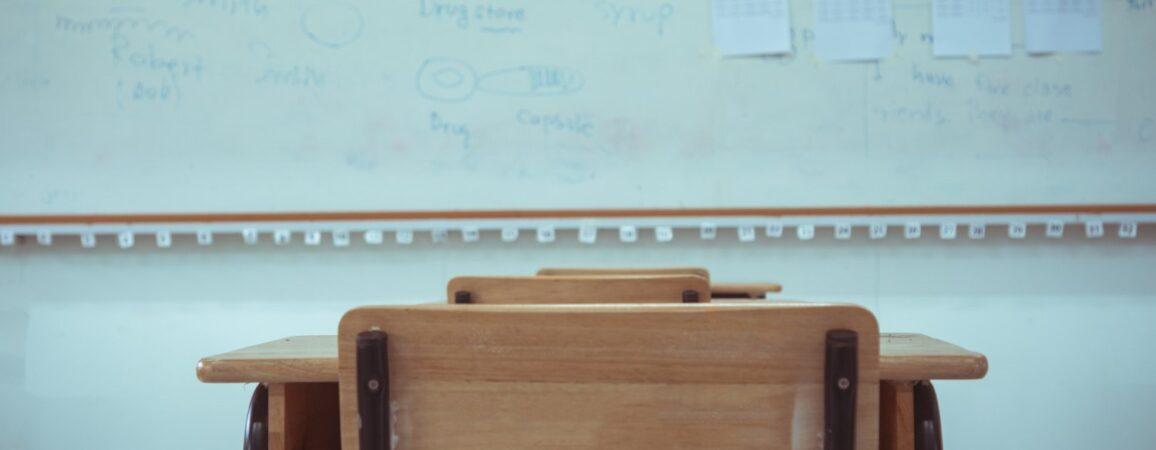An increasing number of the nation’s teachers have plans to leave the profession
NICK EICHER, HOST: Coming up next on The World and Everything in It: the impending teacher shortage.
Earlier this year The National Education Association reported that 55% of teachers are thinking of calling it quits.
That’s almost double the number from two years ago.
Recent World Journalism Institute graduate Katelyn Rafferty wanted to find out the reasons why and so she prepared this report.
KAEMINGK: I will be teaching halftime this fall and starting my new job halftime….
KATELYN RAFFERTY, REPORTER: Until recently Karl Kaemingk taught at Unity Christian High School. He’s one of 600,000 teachers nationwide making a career change since January 2020.
KAEMINGK: I had no desire to leave, I would tell anybody that would come that I had a fantastic job, and the dream job. So it’s been a wonderful career, and I highly recommend it.
Kaemingk is retiring from teaching to pursue a unique ministry opportunity. But he’s not the only one making a change. Many more teachers than usual are considering leaving the profession next year.
Kaemingk blames the exodus on a combination of different stressors—many of them triggered by COVID lockdowns and distance learning. First he says, there are just a lot fewer teachers to help carry the load.
KAEMINGK: Anytime we need a substitute teacher, we’ve had to fill in for each other, which adds to the stress. So instead of a free period, you have to fill in and cover for colleagues sometimes because you can’t find people to sub.
Tim Van Soelen has anticipated this trend for a while. He’s a former teacher. He currently serves as the executive director for the Center for the Advancement of Christian Education at Dordt University in Sioux Center, Iowa.
VAN SOELEN: So the teacher shortage that we’ve talked about for many years is here…
Van Soelen identifies one big reason teachers are leaving the classroom—poor academic performance. After two years of distance learning, students are years behind where they should be.
VAN SOELEN: There have been learning challenges, like academic challenges but the social challenges have been as great as the learning challenges.
Trying to get kids caught up adds even more stress to an already difficult job. During the pandemic, administrators and parents were often more understanding. But now that in person learning is back, many are impatient with the slow progress.
VAN SOELEN: This year has been a more challenging year to lead schools than the year before.
Students have also emerged from pandemic learning with bad attitudes and bad habits. David Schmus is the executive director of Christian Educators Association International.
SCHMUS: I saw a panel of teachers the other day. And they were saying things like, I’ve in all my years of teaching, I’ve never seen this level of disrespect. I’ve never seen this level of lack of care. Or of absenteeism, of tardiness of, you know, profanity aimed at me as the educator, of hostility for my students.
And those attitudes are having an effect on teachers.
SCHMUS: Something has broke in many of our students and the teachers are worn down and worn out and not sure how they can continue in many cases.
Schmus adds that even when students are respectful, many have simply forgotten how to be good learners. After years of attending school from their bedroom, they’re rebelling against tight schedules and rigorous study.
SCHMUS: They’ve just lost the muscle memory or the brain memory of what it means to be a student.
The emerging teacher shortage is likely to get worse. Fewer college students are pursuing education as a career. Professor Tim Van Soelen oversees the education department at Dordt University. He’s seen the dropping numbers first hand.
VAN SOELEN: In 2000, 11 percent of incoming freshmen were education majors. In 2019, I think that number was down to 3.6 percent.
Van Soelen blames several influences for this reduction. But he says negative media coverage hasn’t helped. From school shootings to activist teachers, many parents discourage their kids from pursuing careers in education.
VAN SOELEN: More than half of parents will tell their kids, yeah, you probably don’t want to be a teacher, whereas that was 10 years ago, significantly more, the majority of parents would say ya that’s a good profession for you to consider.
As more teachers consider leaving the classroom, educator David Schmus sees an opportunity for believers to step in.
SCHMUS: If the body of Christ will say hey here’s an opportunity for us to replace all these burned out teachers with carriers of hope and carriers and ambassadors for Christ, wow what an opportunity that is.
Reporting for WORLD, I’m Katelyn Rafferty in Sioux Center, Iowa.
WORLD Radio transcripts are created on a rush deadline. This text may not be in its final form and may be updated or revised in the future. Accuracy and availability may vary. The authoritative record of WORLD Radio programming is the audio record.

